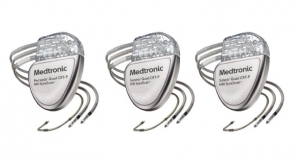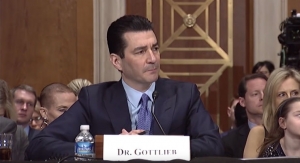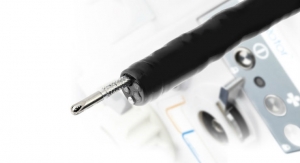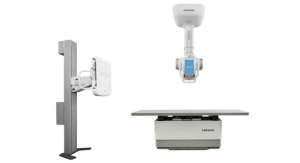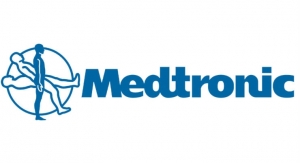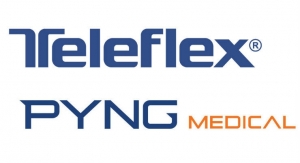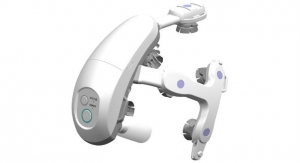Sean Fenske, Editor01.05.17
The annual AdvaMed meeting is a fantastic event that I very much enjoy attending. There are always great sessions that offer interesting perspectives on industry trends and issues. At the same time, you’ll hear from several “cheerleaders” who are extremely excited about the medtech sector on the whole and will share their enthusiasm with anyone who will listen. For lack of a better comparison, it’s quickly become the industry’s pep rally, with a generous helping of education.
One session on the menu for 2016, however, didn’t seem to resemble the standard fare, which made me curious; I had to attend. What I was treated to was nothing short of a horror story that I thought important enough to share. The speaker, Howard Root, CEO of Vascular Solutions—a manufacturer of clinical solutions for diagnostic and interventional vascular procedures and recent acquisition of Teleflex Incorporated—painted a dark picture of the Department of Justice’s (DOJ) ruthless effort to convict him due to a claim of off-label promotion. Fortunately, Root is all too happy to share this tale now that the litigation is over. He took time to speak with me about his incredible experience so as to warn the industry of what they could potentially face.
Sean Fenske: Can you give a brief overview of what your FDA encounter was? What was the agency’s issue with you and your company?

Howard Root
Howard Root: The allegation was that our salespeople talked with physicians about using our Vari-Lase Short Kit for the treatment of perforator varicose veins, which the prosecutors claimed was off-label. The Short Kit constituted 0.1 percent of our sales, two-thirds of our sales people never sold a single unit of it, it was FDA-cleared for the treatment of all varicose veins, and it was never alleged to cause any serious injury to any patient. And at trial, the FDA branch chief that the prosecutors called to testify admitted that the FDA indications for use could be read to cover the treatment of perforator varicose veins. So it was an off-label criminal prosecution about an on-label use of an insignificant FDA-cleared product that never harmed a patient. Almost unbelievable, but that’s what happens when prosecutors believe a money-motivated disgruntled former employee who makes up a complaint to try to get millions as a whistleblower.
Fenske: What were they seeking to do to you and your company for the alleged violations?
Root: The prosecutors said they “had invested their blood, sweat, and tears into this investigation” and therefore “needed a body.” That body, or scalp, was mine. When we tried to appeal their position up to main justice, they said it wouldn’t do any good, because the desire to convict me, the CEO, “came from above.” By convicting me, they wanted me fired from the company I started and excluded from working anywhere in healthcare for at least five years. When we wouldn’t agree to settle, if I’d been convicted at trial, they wanted me to do at least three years in prison and the company could have been excluded from federal healthcare programs, which would have caused VSI to shut down and sell its assets—the death sentence.
Fenske: What extraordinary steps did they take to gather evidence against you?
Root: The prosecutors read secret grand jury testimony of several witnesses to two other witnesses and told the two witnesses that they had to agree to a statement consistent with the grand jury testimony or they would be fired and excluded from working anywhere in healthcare. They threated a female employee that she needed to “cooperate” and that if she didn’t, she “should be aware that the federal government has power over the rights and privileges provided to her natural born son.” They threatened a former employee that if he didn’t plead guilty to a misbranding misdemeanor, he would be indicted on obstruction of justice and face a potential 20-year prison sentence. Another employee was indicted for perjury because he testified in front of the grand jury that he sold our medical devices “for the best interests of the patients” and would not admit that he was doing it only for the money. They also interviewed the FDA examiner for our 510(k) application who told them that he believed our existing approvals covered perforators but they ignored that conclusion and did not disclose their interview of this FDA employee—a violation of the Brady rule. There’s more, but I think this begins to reveal the situation.
Fenske: Can you expand on how they threatened the employees?
Root: The power they have is exclusion. They referred to one employee as “a poor fucker” who “needed to return to San Antonio on bended knee” to correct his testimony. They told multiple employees that if they did not change their testimony to be consistent with the prosecutors’ theory, the employees would be fired when the company settled with the government. But if they changed their story and signed a statement written by the prosecutors, the employees would receive immunity and their jobs would be safe.
Fenske: In your opinion, is there anything a company can do to prevent this from happening to them?
Root: No. Absolutely no. I am a former lawyer who micro manages compliance with a clear tone from the top delivered by a Sunday School teaching Eagle Scout, and I was indicted. The rule is this—if a sales person says the wrong word, even if they are told not to say that word and even if it’s about a product that’s legal for the company to sell and legal for the doctor to use, then the company and the CEO (as the responsible corporate officer) can get indicted for a crime. Under that standard, every commercial medical device company commits at least one misdemeanor every day. And the CEO is guilty even if he tells the sales rep. not to say that word and doesn’t know that the sales rep. violated the CEO’s order. The only way to prevent this is from winning at trial, which we did easily. But only after five years, 121 lawyers, $25 million dollars, and countless hours of abuse.
Fenske: What was the eventual outcome?
Root: Not guilty on all counts. One juror emailed me immediately after the verdict: “What the government did to you and your company is nothing short of criminal.” Think about that—the prosecutors choose the defendants, the charges, the court, the timing, the witnesses. We didn’t call a single witness in our defense, because we didn’t have to. And then the jurors wanted to convict the prosecutors, not me. Obscene.
Fenske: This is an unreal tale of horror that happened in our industry. I’d like to thank you for sharing it with MPO’s readers. Before we close, do you have any other comments or thoughts you’d like to share?
Root: Our industry needs to wake up and start playing offense. We need to start talking about the DOJ’s attempted criminalization of our industry. A defendant can’t push back when the company is
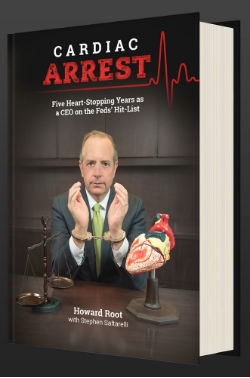 under investigation or indictment. It’s only now, after I was exonerated, that I can speak up. But when I talk to many officers in the medical device industry, they don’t have a clue of the risk they are operating under. Instead, they are concerned with the medical device tax, which is insignificant in comparison to the cost of fighting a malicious criminal prosecution. Edward R. Murrow said, “a nation of sheep begets a government of wolves.” DOJ’s healthcare fraud task force is a pack of wolves. The question is why are we acting like sheep.
under investigation or indictment. It’s only now, after I was exonerated, that I can speak up. But when I talk to many officers in the medical device industry, they don’t have a clue of the risk they are operating under. Instead, they are concerned with the medical device tax, which is insignificant in comparison to the cost of fighting a malicious criminal prosecution. Edward R. Murrow said, “a nation of sheep begets a government of wolves.” DOJ’s healthcare fraud task force is a pack of wolves. The question is why are we acting like sheep.
If that wasn’t enough to scare the bejesus out of you, perhaps you want to hear the whole tale from Root himself. He’s just published a book that provides a play-by-play of the entire experience. "Cardiac Arrest: Five Heart-Stopping Years as a CEO on the Feds’ Hit-List" is available for purchase at www.cardiacarrestbook.com. Root states that you should buy the book for the information, but it’s an entertaining read as well. Unfortunately, what he went through is no laughing matter.
One session on the menu for 2016, however, didn’t seem to resemble the standard fare, which made me curious; I had to attend. What I was treated to was nothing short of a horror story that I thought important enough to share. The speaker, Howard Root, CEO of Vascular Solutions—a manufacturer of clinical solutions for diagnostic and interventional vascular procedures and recent acquisition of Teleflex Incorporated—painted a dark picture of the Department of Justice’s (DOJ) ruthless effort to convict him due to a claim of off-label promotion. Fortunately, Root is all too happy to share this tale now that the litigation is over. He took time to speak with me about his incredible experience so as to warn the industry of what they could potentially face.
Sean Fenske: Can you give a brief overview of what your FDA encounter was? What was the agency’s issue with you and your company?

Howard Root
Fenske: What were they seeking to do to you and your company for the alleged violations?
Root: The prosecutors said they “had invested their blood, sweat, and tears into this investigation” and therefore “needed a body.” That body, or scalp, was mine. When we tried to appeal their position up to main justice, they said it wouldn’t do any good, because the desire to convict me, the CEO, “came from above.” By convicting me, they wanted me fired from the company I started and excluded from working anywhere in healthcare for at least five years. When we wouldn’t agree to settle, if I’d been convicted at trial, they wanted me to do at least three years in prison and the company could have been excluded from federal healthcare programs, which would have caused VSI to shut down and sell its assets—the death sentence.
Fenske: What extraordinary steps did they take to gather evidence against you?
Root: The prosecutors read secret grand jury testimony of several witnesses to two other witnesses and told the two witnesses that they had to agree to a statement consistent with the grand jury testimony or they would be fired and excluded from working anywhere in healthcare. They threated a female employee that she needed to “cooperate” and that if she didn’t, she “should be aware that the federal government has power over the rights and privileges provided to her natural born son.” They threatened a former employee that if he didn’t plead guilty to a misbranding misdemeanor, he would be indicted on obstruction of justice and face a potential 20-year prison sentence. Another employee was indicted for perjury because he testified in front of the grand jury that he sold our medical devices “for the best interests of the patients” and would not admit that he was doing it only for the money. They also interviewed the FDA examiner for our 510(k) application who told them that he believed our existing approvals covered perforators but they ignored that conclusion and did not disclose their interview of this FDA employee—a violation of the Brady rule. There’s more, but I think this begins to reveal the situation.
Fenske: Can you expand on how they threatened the employees?
Root: The power they have is exclusion. They referred to one employee as “a poor fucker” who “needed to return to San Antonio on bended knee” to correct his testimony. They told multiple employees that if they did not change their testimony to be consistent with the prosecutors’ theory, the employees would be fired when the company settled with the government. But if they changed their story and signed a statement written by the prosecutors, the employees would receive immunity and their jobs would be safe.
Fenske: In your opinion, is there anything a company can do to prevent this from happening to them?
Root: No. Absolutely no. I am a former lawyer who micro manages compliance with a clear tone from the top delivered by a Sunday School teaching Eagle Scout, and I was indicted. The rule is this—if a sales person says the wrong word, even if they are told not to say that word and even if it’s about a product that’s legal for the company to sell and legal for the doctor to use, then the company and the CEO (as the responsible corporate officer) can get indicted for a crime. Under that standard, every commercial medical device company commits at least one misdemeanor every day. And the CEO is guilty even if he tells the sales rep. not to say that word and doesn’t know that the sales rep. violated the CEO’s order. The only way to prevent this is from winning at trial, which we did easily. But only after five years, 121 lawyers, $25 million dollars, and countless hours of abuse.
Fenske: What was the eventual outcome?
Root: Not guilty on all counts. One juror emailed me immediately after the verdict: “What the government did to you and your company is nothing short of criminal.” Think about that—the prosecutors choose the defendants, the charges, the court, the timing, the witnesses. We didn’t call a single witness in our defense, because we didn’t have to. And then the jurors wanted to convict the prosecutors, not me. Obscene.
Fenske: This is an unreal tale of horror that happened in our industry. I’d like to thank you for sharing it with MPO’s readers. Before we close, do you have any other comments or thoughts you’d like to share?
Root: Our industry needs to wake up and start playing offense. We need to start talking about the DOJ’s attempted criminalization of our industry. A defendant can’t push back when the company is

If that wasn’t enough to scare the bejesus out of you, perhaps you want to hear the whole tale from Root himself. He’s just published a book that provides a play-by-play of the entire experience. "Cardiac Arrest: Five Heart-Stopping Years as a CEO on the Feds’ Hit-List" is available for purchase at www.cardiacarrestbook.com. Root states that you should buy the book for the information, but it’s an entertaining read as well. Unfortunately, what he went through is no laughing matter.





